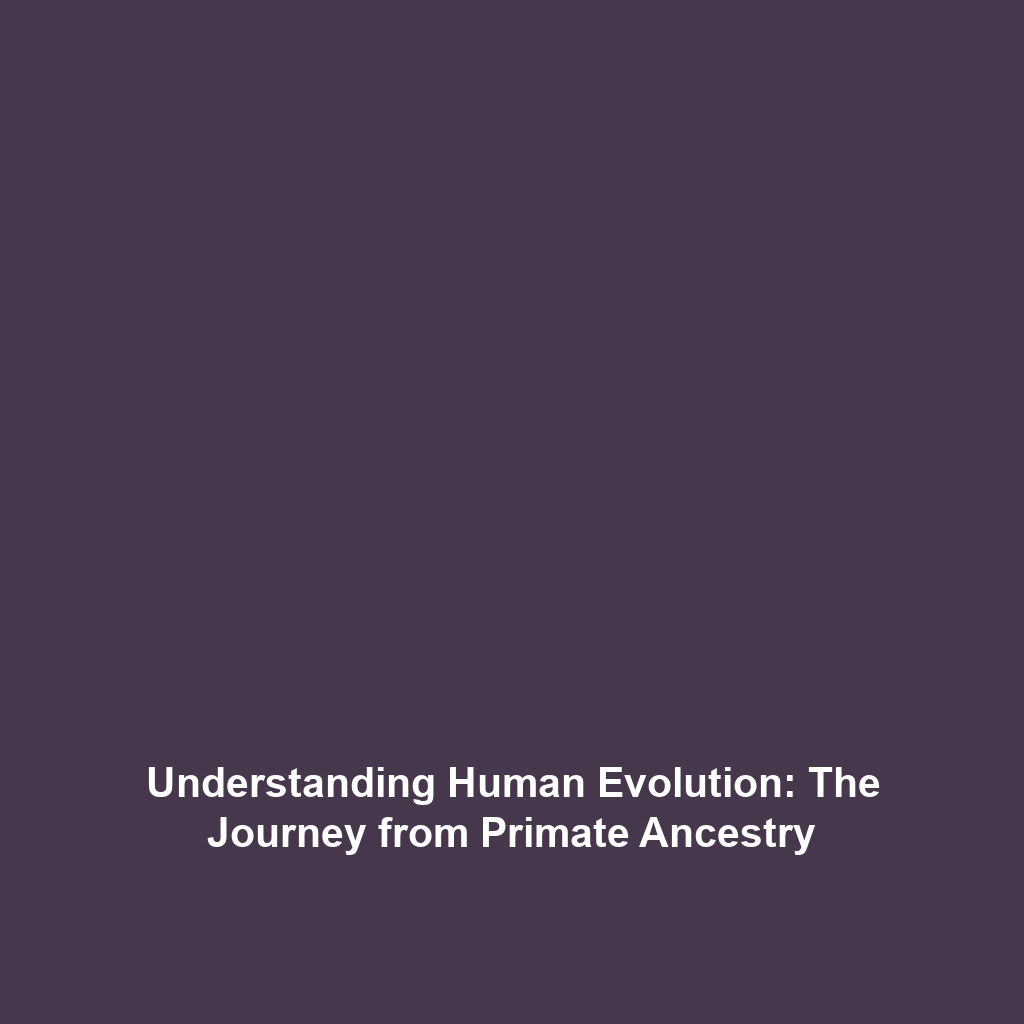Understanding Human Evolution
Introduction
Human evolution is the lengthy process of change by which modern humans developed from their primate ancestors over millions of years. This intricate journey of growth and adaptation has not only shaped our biological traits but also profoundly influenced our behavior, culture, and society. Understanding this process is crucial for comprehending the complex tapestry of human existence. By unraveling the evolutionary path, we gain insights into our origins, genetic diversity, and the forces that will continue to shape humanity in the future.
Key Concepts
1. The Primate Connection
Human evolution is deeply rooted in the evolutionary history shared with other primates. The similarities in DNA, social behavior, and cognitive abilities highlight the common heritage that links us with our closest relatives, such as chimpanzees and gorillas.
2. Natural Selection
Natural selection plays a pivotal role in human evolution, driving the adaptation to various environmental challenges. Traits that enhance survival and reproduction are more likely to be passed on to future generations, contributing to gradual changes in our species.
3. Bipedalism and Tool Use
Two significant milestones in human evolution are the development of bipedal locomotion and the use of tools. These adaptations have allowed our ancestors to explore diverse habitats, gather food more efficiently, and interact with their environment in innovative ways.
Applications and Real-World Uses
The definition of human evolution extends far beyond academic study; it has practical implications across various fields:
- Medical Research: Insights from human evolution inform our understanding of genetic diseases and the human body’s adaptation to environmental changes.
- Conservation Biology: Knowledge of evolutionary processes aids in breeding programs for endangered species, promoting genetic diversity.
- Anthropology: Understanding our evolutionary history enriches the study of ancient cultures and human behavior.
Current Challenges
Despite advances in our understanding, studying human evolution presents several challenges:
- Incomplete Fossil Record: The fossil evidence available often lacks crucial links between species, complicating the narrative of human ancestry.
- Interpreting Genetic Data: Deciphering the implications of genomic variations poses challenges in understanding evolutionary trajectories.
- Environmental Changes: Climate change and habitat loss threaten biological diversity, impacting research and conservation efforts.
Future Research and Innovations
Looking ahead, the field of human evolution is poised for groundbreaking advancements:
- Genomic Editing: Innovations such as CRISPR may allow scientists to explore evolutionary traits and their adaptability.
- Advanced Paleogenomics: Techniques to analyze ancient DNA are unveiling histories that were previously obscured.
- Artificial Intelligence: AI applications in anthropology and genetics are revolutionizing data analysis, leading to new discoveries.
Conclusion
Human evolution is a profound and complex process that has shaped who we are today. Understanding the lengthy journey from primate ancestors to modern humans not only enriches our biological knowledge but also has significant implications for various scientific fields. To delve deeper into related topics, explore our pages on medical research and conservation efforts. Stay informed and engaged with the ongoing discoveries in the fascinating realm of human evolution.

Leave a Reply